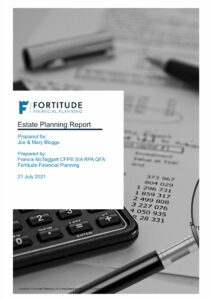Inheritance Estate Planning Mistakes
One of the major problems that occurs with estate planning for one’s passing and financial distribution is that people frequently leave the matter to the very last minute and then make rushed decisions with bad information.
No surprise, common mistakes occur that are oftentimes very avoidable with a bit of planning and thinking a bit earlier.
Every financial planner will be quick to say a good financial portfolio includes planning for one’s estate distribution after they pass, but it can frequently sound like a foreign language to others not as familiar with estate planning.
Assuming one can dedicate some time to planning and work a bit sooner than the very last minute, avoid major mistakes many estate plan packages often have:
#1 Have a Plan
It can be an absolute train wreck for your family and estate not to have some kind of a plan in place at all.
Even a simple Will is far better than completely nothing.
If you pass away with no Will (dying intestate), your entire estate is distributed in accordance with the law of succession.
At least prepare a basic will designating a default beneficiary for all your assets if nothing else.
While many assume their spouse will take over everything, consider point two below, which is a common occurrence.

#2 Think Beyond a Single Beneficiary
Don’t assume the first party designated as a beneficiary will be around by the time your estate plan takes effect.
Life happens and doesn’t stay frozen in time just because an estate plan designates one specific person to be a key beneficiary.
Go a second or third layer deeper as a contingency.
If the first person chosen is then no longer available, a second or more are there.
The executor’s task will be much easier getting your assets distributed properly.
#3 Regularly Update Your Will, Estate Plan, or Trust
Ensure your current Will or estate plan is up to date.
Your financial situation and universe of beneficiaries is regularly changing and often growing.
Changes to adjust for include new children or grandchildren joining a family, inheritance of assets from someone else, changing large assets such as homes and cars and designating inheritance of new financial accounts (bank accounts, investments etc).
Not updating regularly means that when the plan is needed, it may not match or apply at all to any extra assets gained after the fact or new beneficiaries not previously identified being left out.

#4 Think About Your Own Health
People don’t think about their health when they plan an estate.
Very often a surviving spouse may need health support or your own condition may trigger a disability.
This translates into costs that have to be addressed for medical services.
Not having a clear path for power of attorney and health directives can be big issues if someone needs to make health decisions for you.
Again, plan ahead and anticipate these challenges with solutions.
#5 Transferring Assets as a Gift
An easy way to transfer assets early without taxes is a gift, but people hardly use it while alive.
Any individual can transfer up to €3,000 per annum without taxes to any other individual.
This is an easy, simple way to liquidate parts of an estate early.
Even better, you are entirely in control of the asset and transfer as opposed to relying on an executor.
#6 Choose an Executor
Choose an executor who is capable of handling the task of managing your estate.
Handling the estate can include alot of paperwork and legalities.
People frequently choose a sibling or a close relative to execute an estate.
However, that doesn’t mean the person has the fortitude to do the job.
Choose someone with the maturity who is willing to deal with the challenges involved.
This can include appearing at hearings and potentially even fending off relatives!
#7 TAX EFFICIENCY
It’s one thing having a plan – another thing to ensure it’s tax efficient.
After paying tax our whole lives, income tax, CGT, PRSI, USC to name a few – the last thing we want is to leave more than required to the tax man.
Ensure your plans are created as tax efficiently as possible.
Utilise as many reliefs and exemptions as possible.
HOW WE CAN HELP
Are you looking to kick start your thoughts around planning your estate?
Contact us, we will talk it through with you and provide an initial report at no cost, completely free.
This will provide you with a good starting point for your estate planning.

Read more about the value of planning here.
Discuss your estate planning with us

Francis McTaggart CFP® SIA RPA QFA
Disclaimer: All content provided in these blog posts is intended for information purposes only and should not be interpreted as financial advice.
You should always engage the services of a fully qualified financial planner before entering any financial contract.
Fortitude Financial Planning Ltd will not be held responsible for any actions taken as a result of reading these blog posts.



 Production
Production